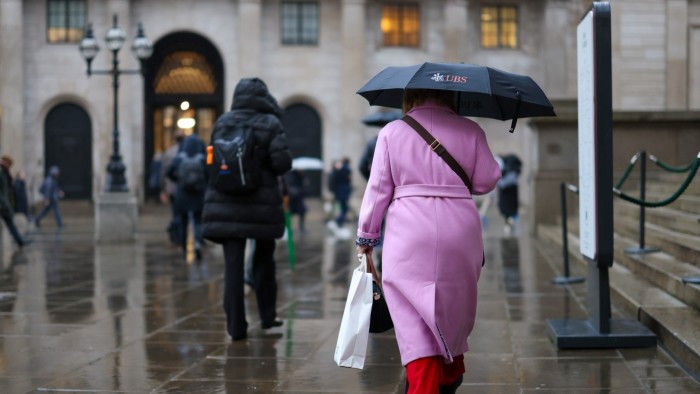Unlock the Editor’s Digest for free
Roula Khalaf, Editor of the FT, selects her favourite stories in this weekly newsletter.
The UK economy suffered its worst contraction in almost two years in April as Donald Trump’s trade war hit exports to the US and tax increases held back the services sector, underlining the challenge facing chancellor Rachel Reeves in boosting growth.
The 0.3 per cent GDP decline was the steepest since October 2023 and below the 0.1 per cent contraction forecast by economists polled by Reuters. It followed growth of 0.2 per cent in March.
Output in the dominant services sector fell 0.4 per cent, with the end of a tax break on home purchases hurting estate agents and law firms. Goods exports to the US fell the most on record, suggesting activity had been brought forward ahead of the sweeping tariffs that took effect in April.
UK companies have also faced an increase in national insurance contributions since April, while households are grappling with higher utility bills.
The UK economy grew by 0.7 per cent in the first three months of this year, but the Bank of England expects the pace of growth to slow to 0.1 per cent in the second quarter.
Rob Morgan, chief Investment analyst at investment firm Charles Stanley, said first-quarter growth had been helped by “a dash for exports” ahead of the imposition of tariffs.
But he added: “With that spike in activity in the rear-view mirror it’s back to a more mundane reality: UK growth well below where the government wants it to be.”
On Wednesday Reeves delivered the government’s spending review, which promised a boost for the NHS but real-term spending cuts for many Whitehall departments.
Responding to the GDP figures on Thursday, Reeves said that “while these numbers are clearly disappointing, I’m determined to deliver on that mission”.
Following the release of the data, the pound dipped but remained up 0.2 per cent on the day at $1.357 against a broadly weaker dollar.
The BoE’s Monetary Policy Committee has cut interest rates four times since August 2024, but was split three ways over last month’s quarter-point reduction to 4.25 per cent.
This week traders increased their bets that the BoE will deliver two more quarter-point cuts this year, with the next move coming in September, after official data showed the unemployment rate rose to a four-year high in the three months to April.



